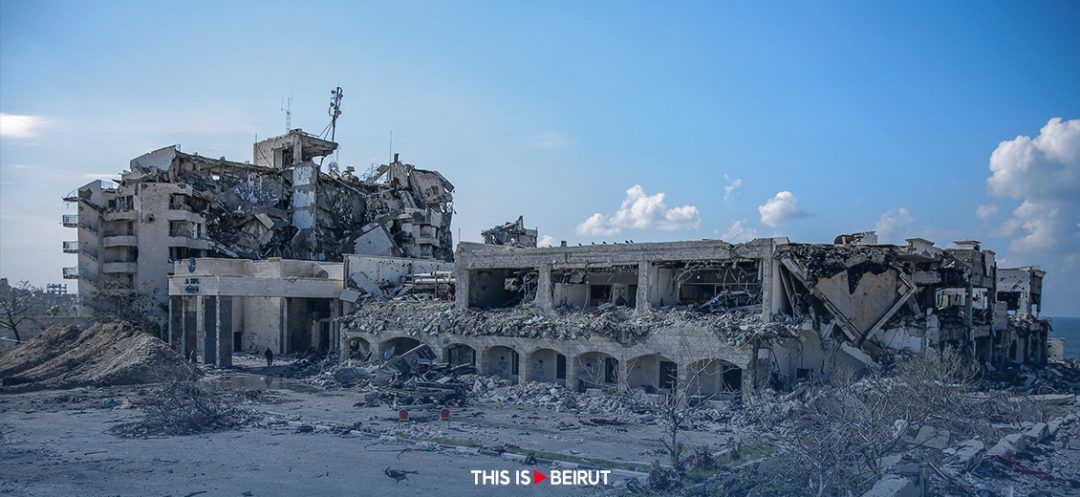- Home
- War in the Middle East
- Netanyahu Promises 'Safe Passage' to Palestinians for Rafah Operation

©(Photo by AFP)
As tensions escalate between Israel and Gaza, Israeli Prime Minister Benjamin Netanyahu vow to extend military operations into Rafah. Despite Netanyahu's assurance of "safe passage" for civilians, questions loom over where the displaced population can seek refuge.
The threat of an Israeli incursion into Gaza's southernmost town of Rafah persisted Sunday, but Israeli Prime Minister Benjamin Netanyahu promised "safe passage" to civilians displaced there.
In an interview which aired on Sunday, Netanyahu reiterated his intention to extend Israel's military operation against Hamas into Rafah.
Despite international alarm over the potential for carnage in a place crammed with more than half of the Gaza Strip's 2.4 million people, Netanyahu told ABC News, "We're going to do it."
"We're going to do it while providing safe passage for the civilian population so they can leave," he said, according to published extracts of the interview.
It remains unclear however, where the large number of people pressed up against the border with Egypt and sheltering in makeshift tents can go.
When asked, Netanyahu would only say they are "working out a detailed plan."
As Israeli forces pushed steadily southwards, Rafah has become the last major population center in Gaza that troops have yet to enter, even as it is bombarded by air strikes almost daily.
"They said Rafah is safe, but it is not. All places are being targeted," Palestinian Mohammed Saydam said after an Israeli strike destroyed a police vehicle in the city on Saturday.
The Israeli premier, who contends "victory" over Hamas cannot be achieved without clearing battalions in Rafah, directed his military on Friday to prepare for the operation. His announcement set off a chorus of concern from world leaders and aid groups.
"The people in Gaza cannot disappear into thin air," German Foreign Minister Annalena Baerbock wrote on social media platform X, adding that an Israeli offensive on Rafah would be a "humanitarian catastrophe in the making."
Saudi Arabia's Foreign Ministry warned on Saturday of "very serious repercussions of storming and targeting" Rafah and called for an urgent UN Security Council meeting, while UK Foreign Secretary David Cameron said that he is "deeply concerned" about the prospective offensive.
"The priority must be an immediate pause in the fighting to get aid in and hostages out," he wrote.
Netanyahu announced the plan for a ground operation in Rafah only days after US Secretary of State Antony Blinken visited Israel seeking a ceasefire and hostage-prisoner exchange.
Netanyahu rejected the proposed truce after what he called "bizarre demands" from Hamas.
But Israel's plans for Rafah have drawn sharp rebuke from main ally and military backer Washington, with the State Department warning that if not properly planned, such an operation risks "disaster."
The office of Palestinian president Mahmud Abbas said that the move "threatens security and peace in the region and the world" and is "a blatant violation of all red lines."
With AFP
The threat of an Israeli incursion into Gaza's southernmost town of Rafah persisted Sunday, but Israeli Prime Minister Benjamin Netanyahu promised "safe passage" to civilians displaced there.
In an interview which aired on Sunday, Netanyahu reiterated his intention to extend Israel's military operation against Hamas into Rafah.
Despite international alarm over the potential for carnage in a place crammed with more than half of the Gaza Strip's 2.4 million people, Netanyahu told ABC News, "We're going to do it."
"We're going to do it while providing safe passage for the civilian population so they can leave," he said, according to published extracts of the interview.
It remains unclear however, where the large number of people pressed up against the border with Egypt and sheltering in makeshift tents can go.
When asked, Netanyahu would only say they are "working out a detailed plan."
As Israeli forces pushed steadily southwards, Rafah has become the last major population center in Gaza that troops have yet to enter, even as it is bombarded by air strikes almost daily.
"They said Rafah is safe, but it is not. All places are being targeted," Palestinian Mohammed Saydam said after an Israeli strike destroyed a police vehicle in the city on Saturday.
The Israeli premier, who contends "victory" over Hamas cannot be achieved without clearing battalions in Rafah, directed his military on Friday to prepare for the operation. His announcement set off a chorus of concern from world leaders and aid groups.
"The people in Gaza cannot disappear into thin air," German Foreign Minister Annalena Baerbock wrote on social media platform X, adding that an Israeli offensive on Rafah would be a "humanitarian catastrophe in the making."
Saudi Arabia's Foreign Ministry warned on Saturday of "very serious repercussions of storming and targeting" Rafah and called for an urgent UN Security Council meeting, while UK Foreign Secretary David Cameron said that he is "deeply concerned" about the prospective offensive.
"The priority must be an immediate pause in the fighting to get aid in and hostages out," he wrote.
Netanyahu announced the plan for a ground operation in Rafah only days after US Secretary of State Antony Blinken visited Israel seeking a ceasefire and hostage-prisoner exchange.
Netanyahu rejected the proposed truce after what he called "bizarre demands" from Hamas.
But Israel's plans for Rafah have drawn sharp rebuke from main ally and military backer Washington, with the State Department warning that if not properly planned, such an operation risks "disaster."
The office of Palestinian president Mahmud Abbas said that the move "threatens security and peace in the region and the world" and is "a blatant violation of all red lines."
With AFP
Read more



Comments